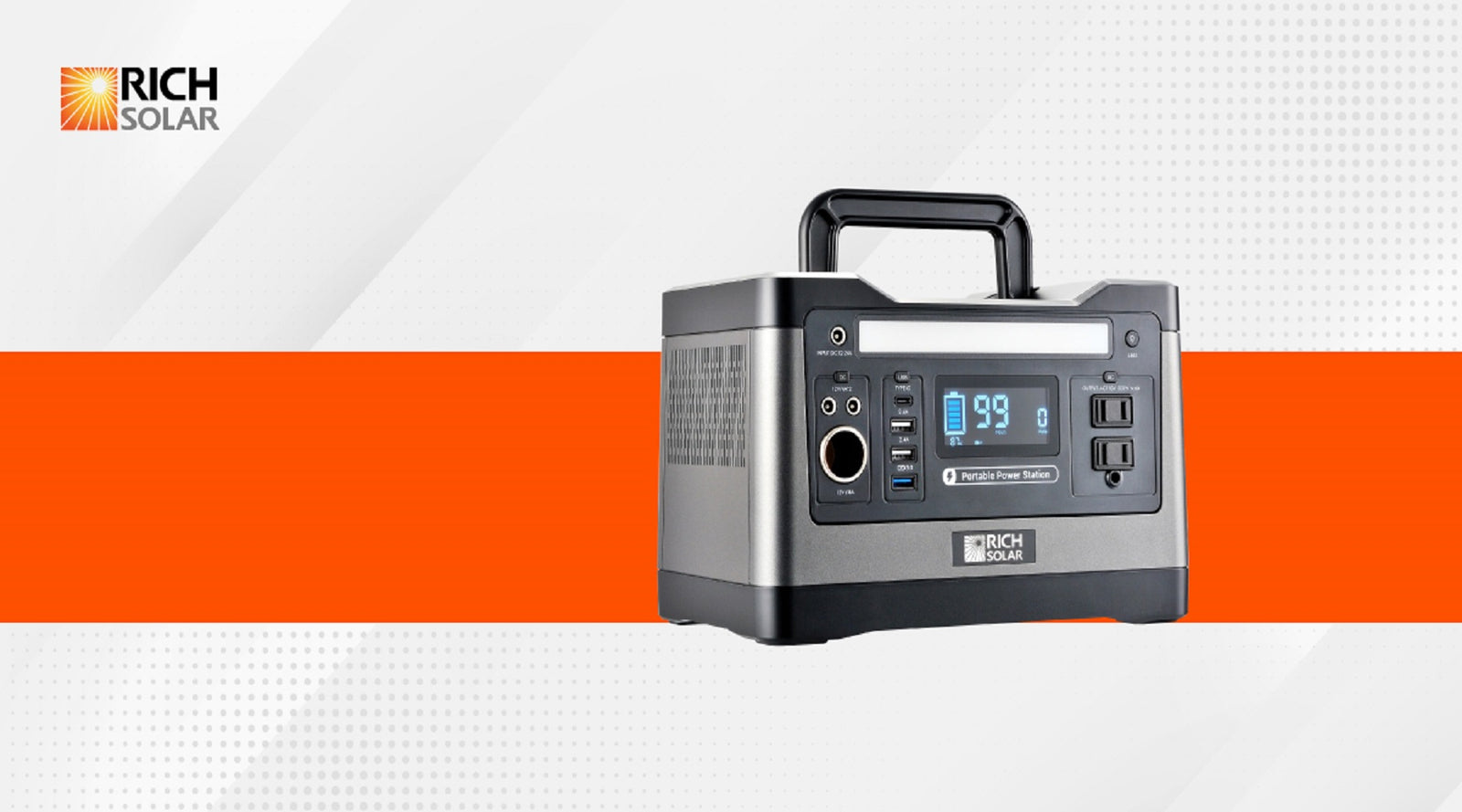Did you know that using solar energy in just a year alone can save 122 trees, 8,000 pounds of coal, 12,500 pounds of carbon emission, 18,000 miles of driving, and 1,000,000 full smartphone charges? Yes, you could enjoy all these solar energy benefits if you invest in good quality solar equipment or devices such as solar generators. What are solar generators and how do they work?
Solar Generator Defined
A solar generator, also known as a solar photovoltaic system, typically pertains to any generator that runs on solar power. However, most people refer to it as a portable, compact machine made up of solar panels, batteries, solar charge controllers, and inverter. The most common impression people have on solar generators is that they are just a substitute source of energy when in fact they can also be otherwise! They offer as much power as conventional power sources and maybe even more.
Solar generators are available in different types, brands, styles, functions, and sizes. They can power up large appliances like a refrigerator, air conditioner, and washing machine. Smaller appliances like an electric cooker, coffee maker, and oven may also be powered by solar generators.
Aside from appliances that are used for our daily needs, solar generators can also power up electronic devices like laptops, smartphones, and other gadgets. Nowadays, these devices can be just as important as our appliances since they are used for accomplishing work-related activities, household errands, and other personal tasks. Solar generators can also be used to power home drilling tools and even those outdoor essential appliances like light and mini fans.
The earliest solar-powered engine, which converted solar energy into mechanical steam power, was invented by 19th-century French inventor Augustin Mouchot. This is considered the earliest solar generator. He expounded on the idea of looking for new alternative energy sources so in 1860 he looked into solar cooking. By August 1866 he had developed the first parabolic trough solar collector and since then continued to grow the scale of his solar experiments. In September 1871 he got financial support from the General Council of Indre-et-Loire to build an experimental solar generator at the Tours library.
Solar Generators vs Gas Generators
Solar generators and gas generators are often pitted against each other because the latter are also compact and portable machines that can power up appliances and outdoor devices. How do they fare in terms of performance and other factors? Let’s see:
-
Reliability
For it to be a worthwhile investment, a generator should be durable, reliable, and long-lasting.
Solar generators are more durable than gas generators because once connected to solar panel systems they will continue to store energy. You don’t need to exert much effort in ensuring that it works. With gas generators, you are reliant on external fuel sources which are exhaustible, not to mention expensive.
-
Pollution reduction
Since solar generators primarily rely on solar energy for power, they can help eliminate air pollution and lessen carbon footprint because they don’t exhaust any harmful fumes. As long as they are powered by solar panels, they could store energy. On the other hand, gas generators release carbon monoxide and other detrimental pollutants that can cause air pollution. Noise pollution may also be eliminated when using solar generators since they don’t have moving parts that can potentially cause noise when run. Gas generators make too much noise so running it may cause disturbance to you and the rest of your neighborhood.
-
Life span
Solar generators typically last 55,000 hours. Since they usually last for 25 years, you may enjoy their benefits for around 6 hours per day. The average life span of gas generators is about 2,500 hours. So, if you use them for 6 hours per day, they will only last for about 1 ½ years.
Types of Solar Generators

There are three main types of solar generators:
-
On-grid solar generators
These solar generators are connected to the power grid for it to work. Solar panels first capture sunlight then transforms it into electrical energy in the form of direct current. Direct current is sent to the inverter which transforms it to alternating current. Alternating current is sent to the power board which supplies electrical power to homes and buildings.
-
Off-grid solar generators
Also known as autonomous or standalone solar generators, these generators run with the use of batteries which are powered by solar panels. The energy generated should therefore be used on the spot or allocated to another place. Off-grid solar generators are typically used in recreational vehicles or RVs and marine vehicles. You will need to use RV solar panels and marine solar panels to charge the solar generator’s battery if you wish to use it during your leisure travels.
-
Hybrid solar generators
These solar generators are considered the new age generators since they combine traditional generators with a controllable electric source. This is done to create a fuel-efficient, environment-friendly, and noise-reduced power supply source. They are useful in areas where access to petrol, diesel, or LPG is problematic like some homes or shops.
Why Solar Generators?
There are many benefits to using a solar generator to help power up your homes, RVs, and marine vehicles:
-
Access to an unlimited supply of solar energy
Since solar generators harness the power of the sun for their energy source, you get an endless power supply from the moment you purchase one! No need to worry about buying fuel or gas which can be costly nowadays. And the price of fuel will only keep on rising as the years pass by. The sun’s energy is virtually free of charge!
-
Light and easily transportable
Traditional generators are typically heavy machines that are difficult to transport from one place to another. Solar generators are light and easily moveable. They are also easy to install so there’s no hassle in owning and using one.
-
Ideal option for power backup
Solar generators make for a great source of power backup for your home during rolling blackouts and faulty powerlines. It can also help you get control over your electricity consumption. Break free from predictable electric bills by investing in home solar panels and a home battery. Aside from being a backup power source, it can be your main source of power for your RVs and marine vehicles.
-
Low maintenance
Solar generators need a minimal amount of maintenance. You just need to remove dust for maximum photon absorption. Since they don’t have moving components, you don’t have to worry about occasionally replacing machine parts.

Disadvantages of Using Solar Generators
There may be a few disadvantages to using solar generators but these are outweighed by the advantages. It’s good to know them so you can prepare for countermeasures accordingly:
-
High primary cost
Solar generators are more expensive than standard generators so you need to be financially prepared should you consider investing in one. However, since solar generators rely on sunlight for power, you won’t have to deal with paying for expensive gas or fuel. Solar energy is free, ergo, you would spend less money as you use your solar generator for years to come.
-
Limited power supply
Since the batteries of solar generators may only be recharged during the daytime, the energy source is limited. It also takes a relatively long time for a solar generator battery to charge. For example, a solar panel that can help charge solar generator batteries has 100 watts power output that needs around 9 hours for it to charge fully.
-
Limited energy output
The amount of power a solar generator can retain is dependent on its weight and size. A solar power generator is an ideal option for moderate use.
How Solar Generators Work
Essentially, solar generators work by transforming solar energy into energy that can be stored and then power up homes and vehicles. When particles of light or photons hit a solar panel, electrons are loosened from atoms. Electrons are then turned into direct current (DC) electricity. The electricity is then passed through a charger controller. The controller regulates electricity voltage to protect the battery from damage. Lithium battery types are known to work best for solar applications like solar generators.
The batteries will then store electricity in chemical energy form until it’s connected to an appliance or device. The charge will be passed through an inverter. The inverter transforms direct current into alternating current (AC) electricity. A converter will then step up the voltage rating from 12, 24, or 48 volts into the required voltage by appliances. The usual rating required is 110 or 240 volts. The electrical current will then go through an extension cord and power up electrical machines.
This whole process is what makes solar generators the quieter and cleaner choice compared to gas generators. Since they don’t have engines that need fuel to move a piston in creating mechanical energy, they operate quietly but effectively.
How Long Will a Solar Generator Last During Power Outages?
The expected run time for solar generators is dependent on the battery capacity, amount of charge on the battery, and the amount of power needed by the appliances to which the generator is connected. Thus, it is crucial to estimate how much power your appliances need before purchasing a solar generator. For example, heavy-duty devices need large solar generator power while small electrical devices may be powered by a small solar power battery.
To determine the estimated run time, you need to look at the product description and check if it shows power or battery capacity. Solar generator’s power is indicated in watts and its capacity in watt-hours of amp-hours. The higher the numbers are, the more power the generator has.
Take note though that a solar generator with high potential power does not automatically guarantee long run time. Run time is also dependent on the load. Take the case of a 500-watt solar generator. It could keep an LED light on for about 100 hours but the same generator will only power up a mini-fridge for about 10 hours. So getting the right solar generator size is crucial.

Proper Storage for Solar Generators
Investing in solar generators and using them either for main or alternative energy sources is a good move but it involves high initial costs. Thus, you must know how to best store or maintain it:
-
Monthly cleaning
Don’t let small particles penetrate your solar generator by doing monthly minor maintenance routines like dusting, removing moisture, removing cobwebs, checking connections, and applying the anti-corrosive paste.
-
Annual inspection
Make sure that it gets thoroughly inspected by a professional once a year. This is to avoid corrosion from ruining your solar generator and battery bank cables. Corrosion may cause resistance that is tantamount to heat and can eventually melt the battery connection.
-
Clean as often as needed
If you’re located in an area where snow is experienced frequently, you need to clean your solar generator and solar panels as often as possible. This is to ensure that snow or other natural elements will not cover your solar generator and battery. Once your generator is covered in snow, dirt, or debris, its efficiency is compromised. If you use your generator only during leisure trips like in your RVs and marine vehicles, they should be cleaned right before you use them.
Yes, Size and Type Do Matter with Solar Generators!
Before you proceed in buying solar generators, whether for home, camping, or travel use, make sure to go for the best size and type that suits your needs. If you have questions about the best solar generator to buy, or which solar panels can help power up your home or vehicles, visit Rich Solar and be properly informed.

